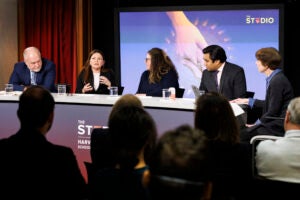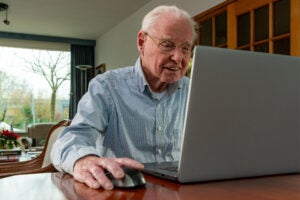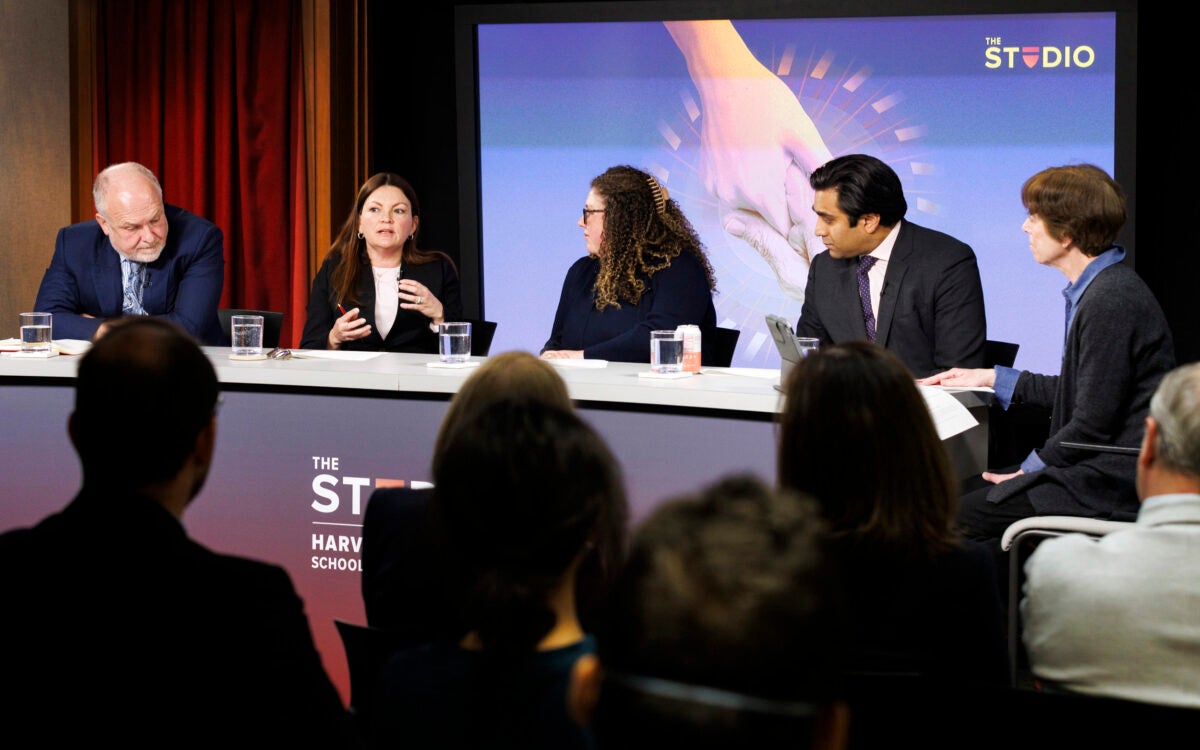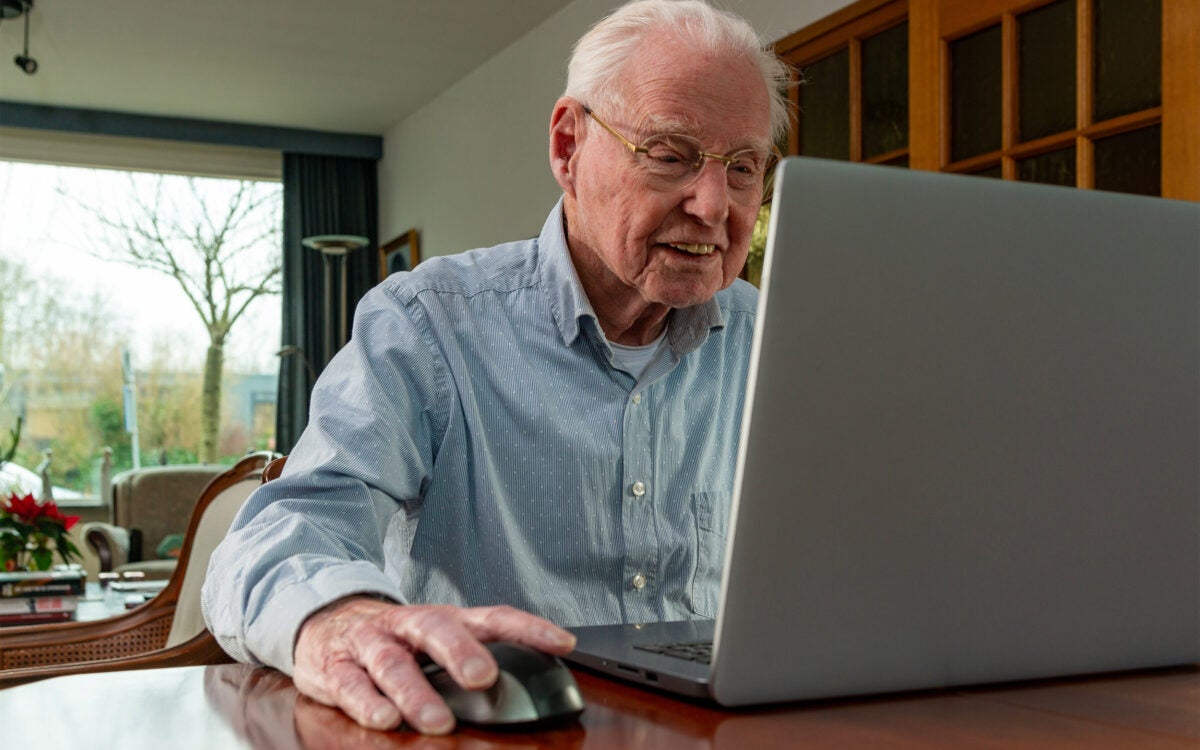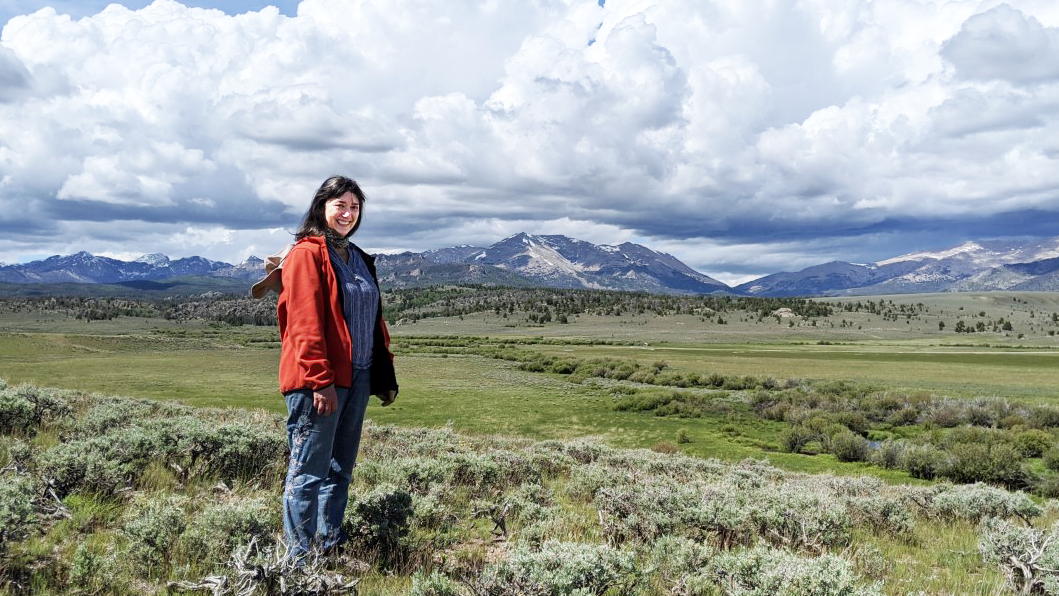
Monica Bertagnolli is ensuring that more people in her home state of Wyoming are getting the health care that they need.
Photo courtesy of David Dannenberg
Trial run
“We’re trying to make sure that cancer clinical trials can get to every single patient who needs them.”
In Monica Bertagnolli’s home state of Wyoming, access to in-depth care for cancer patients is sparse, but the chief of surgical oncology at Brigham and Women’s Hospital is working to change that.
“In Wyoming, it tends to be that there’s a great distance to travel between where people live and [where they can] find an oncologist or specialist,” she said. “If you need chemotherapy or radiation treatments and it has to be administered every day, and if it’s 120 miles from where you live, that ends up being a huge barrier to receiving the kind of care you need.”
After graduating from the University of Utah School of Medicine, the closest medical school to the cattle ranch that she grew up on and still manages, Bertagnolli became the leader of the Coalition of Cancer Cooperative Groups — an international network of individuals who work to improve the quality of life and survival of cancer patients by increasing participation in cancer clinical trials — and now serves as the vice president. The coalition is working to ensure that rural patients can access comprehensive and quality health care.
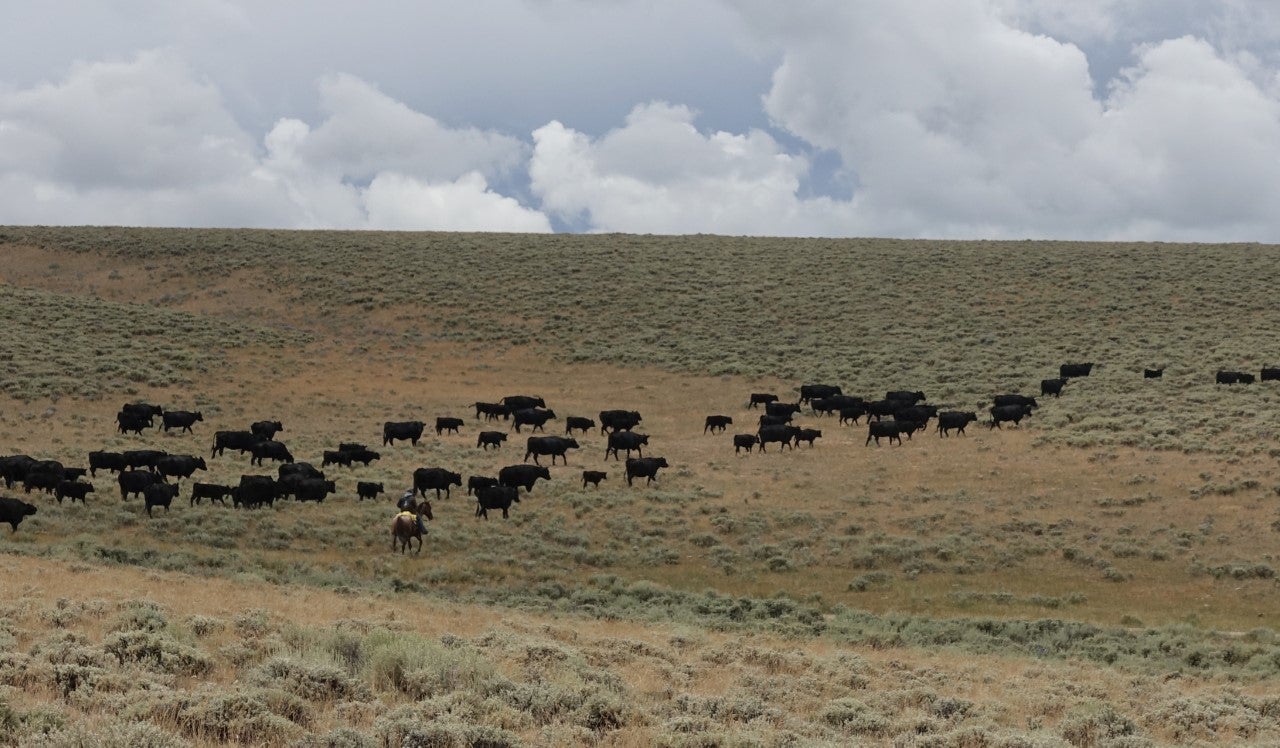
The cattle ranch that Bertagnolli grew up on and still manages.
Photo courtesy of David Dannenberg
“It was very important to me when I became the leader that people in my own home state would have access to clinical trials,” she said. “One of the really important things is, we’re trying to make sure that cancer clinical trials can get to every single patient who needs them.”
Clinical trials are vital to cancer research because they are designed to answer specific questions about new treatments like novel vaccines or drugs. The research studies are conducted on patients and generate data on safety and efficacy of treatments.
The coalition set up sites in northern and southern Wyoming that are able to run clinical trials. Before those trials became available, patients would usually go to Denver or Salt Lake City — a three- to seven-hour drive.
Bertagnolli’s dedication to understanding and increasing access to the health care needs of her rural Wyoming patients also includes helping to develop new policies that will allow patients to participate in more clinical trials, and linking them with a regional doctor or oncologist who can get them the access to the care they need.
“It is very rewarding to help them get the tools they need to succeed,” she added.
In addition to the clinical trials, Bertagnolli said that technology’s progress has also had positive implications for rural communities like those in Wyoming.
Progress like better cell phone and internet service in the mountains of Wyoming, as well as social media, has helped residents stay in touch with loved ones and medical professionals despite their distance, Bertagnolli said.
“Many places that have been really isolated are being brought together by technology,” she said. Technology helps to “maintain and foster our human links and our ability to connect with each other as people. [It’s a] tremendous benefit to people who have been isolated.”
As in most places, the coronavirus pandemic has caused some issues, but it’s also had some unexpected benefits for cancer patients in Wyoming, Bertagnolli added. These changes include permission to send oral cancer drugs via the mail for the first time and virtual telehealth visits.
“I’m trying to advocate as strongly as I possibly can for those changes to continue,” she said.
Bertagnolli pointed out that Wyoming is nicknamed the “Equality State” — it was the first state to give women the right to vote — and for her, this fight for equality now translates to health care access.
“I still consider myself part of Wyoming and I am very devoted to making sure that patients can get access [to care].”
This story is part of the To Serve Better series, exploring connections between Harvard and neighborhoods across the United States.

